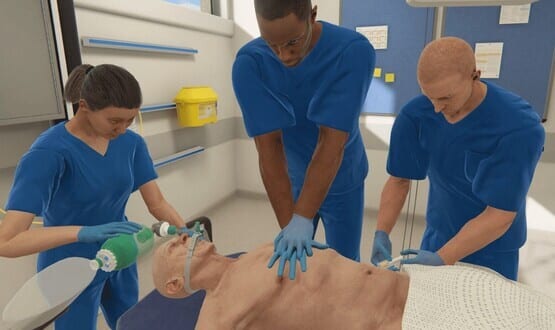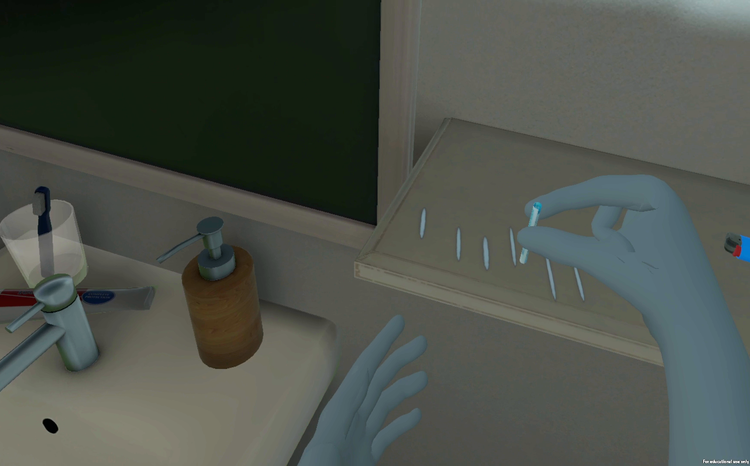Northumbria University simulation tech receives best practice praise
- 23 February 2024

Northumbria University’s innovative use of virtual reality and simulation technologies in nursing education has been highlighted by Oxford Medical Simulation as an example of best practice.
After Northumbria University invested in a state-of-the-art virtual reality learning platform, its Department of Nursing, Midwifery and Health designed a simulated practice placement programme for nursing students, called SkillsFest.
Five hundred second-year students then took part in a huge range of specialist simulation-based education using the programme. Over the course of one month, almost 13,000 simulation sessions were completed, across 31 different clinical cases with patients of all ages.
The programme was designed to replicate the situations that students may face while dealing with patients, allowing them to display and practise the skills needed to meet Nursing and Midwifery Council requirements.
Leading tech company Oxford Medical Simulation was so impressed with the success of the programme that it is now encouraging other universities to deliver simulation education in similar ways, showcasing it as an example of best practice.
Jessica McGahan, head of customer success at Oxford Medical Simulation (OMS), said: “The team at Northumbria University are leading the way in providing placement hours with VR for a large cohort of students. The nursing department have successfully embedded OMS technologies into a multi-year programme, providing learners with the opportunity to manage care in a realistic, immersive, and safe clinical environment.”
Virtual reality and simulation technologies are increasingly being used in nursing education, as it provides an opportunity for students to develop and practice key clinical skills in a safe environment. In March last year England became the first country in the world to launch clinical training in perinatal mental health using extended reality (XR) technology.
Northumbria University was able to secure an award of £300,000 from Health Education England, to fund the development of the platform. It was developed with students and external partners, including local NHS trusts and the Nursing and Midwifery Council.
Barbara Davies, associate professor in nursing at Northumbria University, led the team that developed SkillsFest. She said: “One of the greatest benefits of simulation-based education is that it affords opportunities to practice and rehearse skills in situations that faithfully replicate key features of the real-world environment.
“Oxford Medical Simulation were so impressed with the way we collaborated with external partners to create the programme, and with the number of students who took part, that they are now championing Northumbria University as an example of innovative practice for other universities to learn from.”
The SkillsFest programme has already been embedded into the undergraduate curriculum and next year it will be expanded into the master’s curriculum too.





